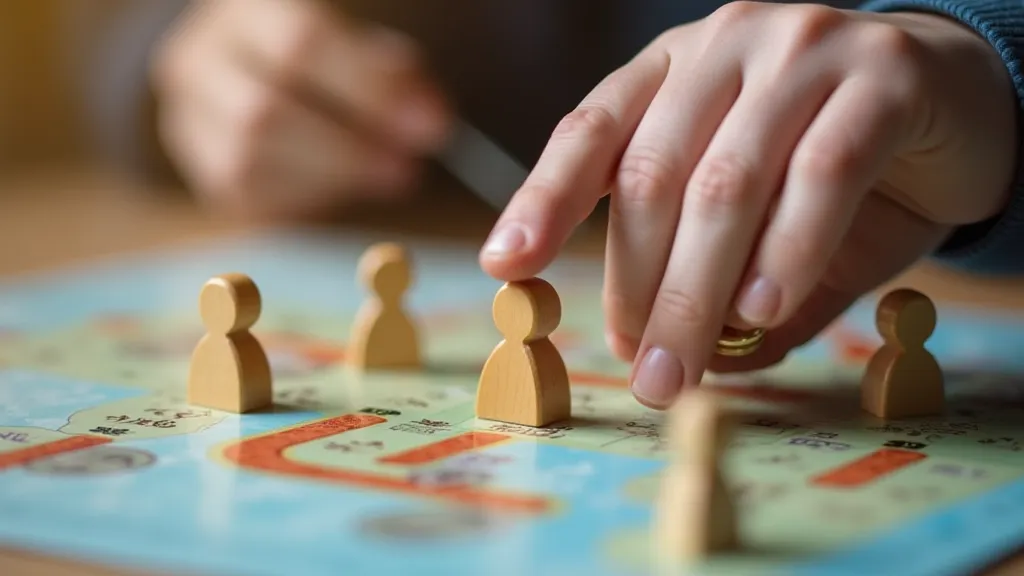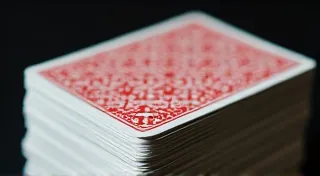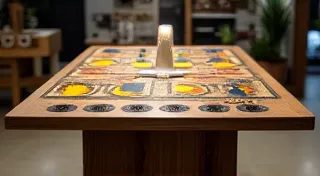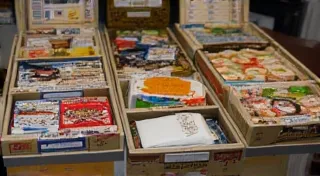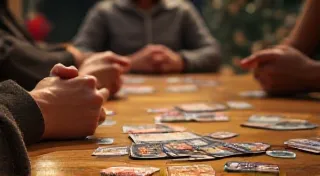A Beginner's Guide to Eurogames: Understanding the Mechanics
Welcome to the exciting world of Eurogames! If you’ve been primarily playing games with direct conflict, dice-rolling dominance, or elaborate narrative campaigns, you might be wondering what makes Eurogames so different – and why they’re so popular. This guide breaks down the core mechanics, provides examples of popular titles, and explains what makes these games so engaging for a growing number of tabletop enthusiasts.
What *Are* Eurogames?
The term "Eurogame" (also sometimes called "German-style board games") originated in Europe, particularly Germany, and refers to a specific design philosophy. They contrast with "American-style" games, which often emphasize player conflict, luck, and a strong theme with lots of narrative.
While there are exceptions to every rule, Eurogames typically emphasize:
- Limited Direct Conflict: While competition exists, Eurogames generally avoid direct attacks or abilities that actively hinder another player's progress. Instead, players compete for resources, points, or positions.
- Resource Management: These games often revolve around collecting and strategically using resources like wood, stone, or money to build structures, acquire goods, or score points.
- Engine Building: A key element in many Eurogames is the concept of "engine building," where players gradually improve their abilities and efficiency over the course of the game, creating a powerful system that generates more resources or points.
- Strategic Planning: Eurogames reward careful planning and long-term thinking. Luck is usually minimized, and players have more control over their outcomes.
- Elegant Design: Eurogames often prioritize clear rules, streamlined gameplay, and a pleasing aesthetic.

Key Mechanics You'll Encounter
Let's dive into some of the most common mechanics you're likely to see in Eurogames. Often, a game will blend several of these mechanics to create a unique and rewarding experience. Choosing the right space to place your workers in can be just as strategically important as laying tiles in , showcasing how seemingly disparate elements intertwine to create compelling gameplay.
- Worker Placement: Players have a limited number of "workers" they can place on various action spaces on the board. These spaces allow them to gather resources, build structures, or take other beneficial actions. Popular example: . Consider how the placement of each worker influences your potential for victory – it's a truly fascinating blend of tactical decision-making and long-term planning.
- Tile Laying: Players place tiles onto a growing board, strategically connecting them to create valuable combinations or expand their territory. is a quintessential example. The beauty of this mechanic lies in its simplicity: the rules are easy to grasp, but the strategic possibilities are endless.
- Drafting: Players select cards or tiles from a common pool, often in a simultaneous or alternating fashion. This creates tension and forces players to adapt to their opponents’ choices. is a great example. It’s a fantastic way to introduce players to the feeling of competition without the direct conflict found in many traditional games.
- Set Collection: Players aim to collect sets of cards or tiles to score points. The value of a set often increases with the number of items collected.
- Route Building: Players lay down pieces to create routes or networks, scoring points based on length, connections, or specific destinations.
Popular Eurogame Examples
Here are a few widely-loved Eurogames to get you started. The variety of titles is staggering, and while some might seem daunting at first, the core mechanics are often surprisingly accessible. If you're new to the world of strategic board gaming, you might enjoy starting with something a little less complex than , and instead diving into the elegance of or the accessible competition of .
- Carcassonne: A simple yet incredibly strategic tile-laying game.
- Ticket to Ride: A route-building game with beautiful artwork and accessible gameplay.
- Agricola: A worker placement game about farming and family building, with a satisfying engine-building element.
- Terraforming Mars: A more complex game where players collaborate (and compete) to transform Mars into a habitable planet.
- Wingspan: A beautifully illustrated game about attracting birds to your wildlife preserve, combining engine building and set collection.
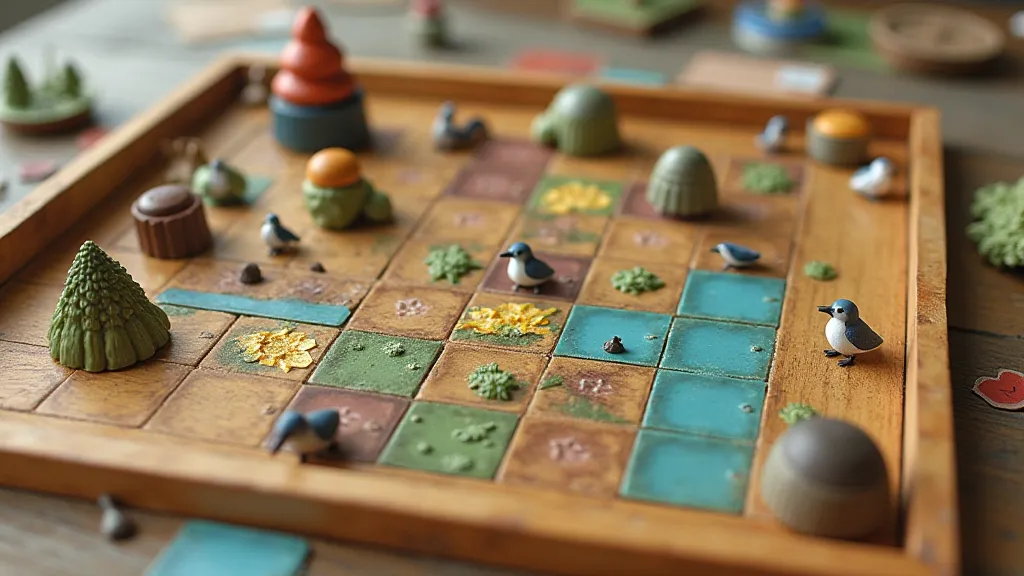
The Strategic Depth of Eurogames – Beyond the Mechanics
While the mechanics themselves are key, the true appeal of Eurogames lies in the strategic depth they provide. It's not enough to simply place a worker or lay a tile; you need to consider the long-term implications of your actions and how they will impact your ability to score points or acquire resources. This kind of thoughtful planning is a welcome change from the often-random nature of traditional board games. And if you appreciate the strategic thinking inherent in Eurogames, you might also enjoy exploring abstract strategy board games like Chess and Go, which challenge you to think several moves ahead and anticipate your opponent's actions.
Why are Eurogames so Engaging?
Eurogames offer a unique and rewarding experience. The strategic depth, the satisfying feeling of building an efficient engine, and the relatively low amount of luck involved make them incredibly engaging. They foster a different kind of social interaction – one focused on strategic planning and subtle competition, rather than direct conflict. The elegance of the design and the satisfying click of well-placed pieces add to the overall experience. Sometimes, the choice of which game to play with friends can be difficult. If you're looking for a competitive edge, you might also want to consider the best two-player board games for a particularly intense and strategic night.
Expanding Your Eurogame Collection – Beyond the Basics
Once you're comfortable with the core mechanics, there's a vast and diverse world of Eurogames waiting to be explored. Many games combine multiple mechanics to create truly unique and challenging experiences. Consider trying games that involve resource conversion, hidden information, or even cooperative elements. Don't be afraid to experiment and find what resonates with you. The landscape of tabletop gaming is constantly evolving, with new and innovative designs emerging all the time. It's a truly exciting time to be a board game enthusiast!
Taking the Next Step
This guide is just a starting point. There’s a vast and diverse world of Eurogames waiting to be explored. Don't be afraid to try new things, read reviews, and join online communities to learn more. Welcome to the exciting world of Eurogames!
